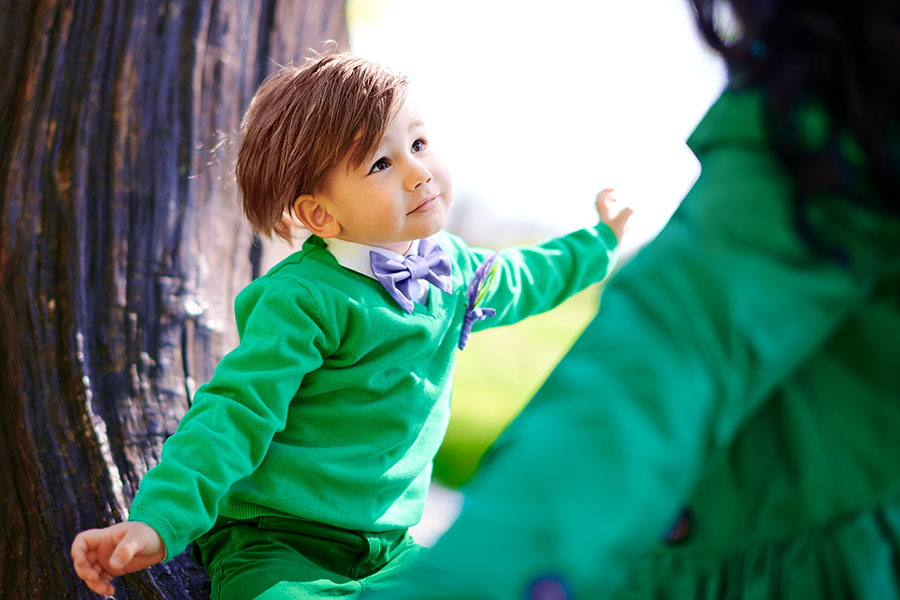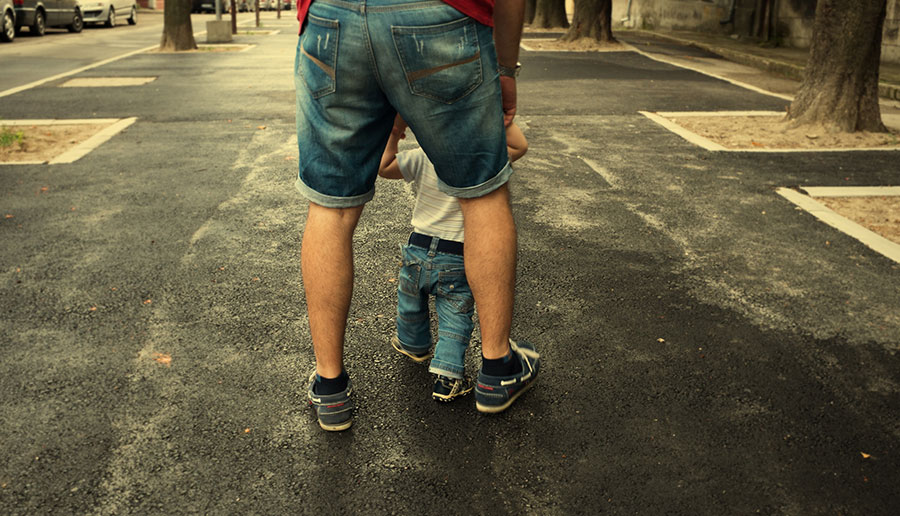Values are the criteria people use in assessing their daily lives. They are a filter to decide on priorities, how to make choices between alternative courses of action, and how to behave. In short, values show what people deem to be important to them. But values don’t mysteriously appear. They are acquired over a lifetime, based on our observation of the behaviours of those around us, the social climate and our culture, and carefully stored in our subconscious. However, values are not static but evolve as we become older and wiser. They change to reflect our current environment and experiences. Some values are so deeply rooted, they rise to the surface only when a person is under stress or taken unawares. In short, values provide us with a subconscious response to the events or circumstances we encounter.
From birth children acquire values by observing and mimicking both positive and negative behaviours of others they see around them. Parents are the principle role-model for the under 7’s. From 8 years upwards, children are driven by independence and exploration, and acquire values from peer groups, schooling, and observing their world filtered via the media —TV, books, films, internet etc. The values children adopt in their middle-grade years—for better or worse—provide them with a framework or guidance for their journey towards adulthood. So for example, as a parent you want your child to be truthful to you and to others. Being truthful is a positive value, but if you ask your child to lie for you to the man that comes to the door looking for a charity donation, how can you expect your child to tell the truth when you don’t.

The crucial importance of values, especially for children, comes from the fact that they are unconsciously shared by parents, and unconsciously adopted by a child. This is a dangerous mix when a child is exposed to negative influences, as they will respond to similar situations in the same negative manner so perpetuating the behaviour. Hence, values matter, and children’s values matter even more.
Personally, I came to values late in life. By which I mean it was only recently I realised the huge significance that values have on everyone’s behaviour, attitudes and thought processes. And since positive values benefit everyone, this was my starting point for the Billy Growing Up series of books. It was a year ago I arrived at the conclusion that it’s an absolute necessity to bring positive personal values to children. Since then I have been busy ploughing my own furrow without really looking at the bigger picture, or noticing what other values initiatives were already in place.
In September, I attended a conference at Bath University, UK hosted by the Society of Authors. At the conference I became acquainted with Shelagh Moore, author and consultant on values in education (ALIVE – Association for Living Values Education International). As fellow writers we talked about our writing, and I shared my Billy book project. Fortuitously, she told me about Dr Neil Hawkes, and the work he is doing. Given the subject matter of my books, she suggested I make contact. During my research on Dr. Hawkes, I found out about the Values in the Classroom conference, and promptly signed up.

Values in the Classroom conference was an excellent weekend organised and facilitated by Dr. Neil Hawkes and his team, and hosted by the Brahma Kumaris in their superb venue, near Oxford, UK. Both organisations are committed to living values, and seeing them work effortlessly together demonstrated to me how value-based organisations complement each other, and through cooperation, can achieve outstanding results.
Dr Hawkes’ Value based Education (VbE) program (valuesbasededucation.com ) explicitly sets out to develop an ethical language to help young children learn, talk about, and embed positive values in their daily life. My approach in the Billy Growing Up books, on the other hand, is to draw lessons from the sorts of behaviours children naturally exhibit or experience, and then turn them into a positive lesson via the use of storytelling. I see the two approaches working together. VbE is more a preventative strategy by catching children young enough to impact the likelihood of them developing the negative values that permeate modern society. I’m coming at values more from their meaning and importance. When a child has been schooled in a positive-valued environment the need for anti-bullying strategies, as an example, are negated since peer-bullying is unlikely to take place. And similarly with the other undesirable behaviours I focus on – jealousy, arrogant pride, stealing, lying, lack of self-belief, keeping secrets, and greed. However, every child is not in a VbE program—around 20% of all UK primary schools are signed up—but children learn in many different ways, so experiencing bullying, or other bad behaviours, via a fictional story helps them reframe their understanding of that behaviour in a safe environment.

That said, the Values in the Classroom conference was a real eye opener for me, and I feel, a pivotal point for my books. As a result I have started to bring my books more in line with Dr. Hawkes’ VbE program, but still retaining my overall storytelling approach, and writing voice.
The Billy Growing Up series champions the VbE objective to influence a child’s capacity to succeed in life by encouraging them to adopt positive values that will serve them during their early lives, and sustain them throughout their adulthood. Building on the VbE objective, each Billy book uses the power of traditional storytelling to contrast negative behaviours with positive outcomes to illustrate, guide, and shape a child’s understanding of the importance of values.
On a personal note, with our first grandchild due in Spring 2016, I am even more passionate about helping children through this formative time, and I’m looking for every opportunity to partner with other like-minded people to send out the message that growing up may be complex, but it’s lots of fun too. Children are our future, and if I can help them in some small way to adopt positive values in a socially acceptable way, I will feel it’s a job well done.



 James Minter
James Minter 